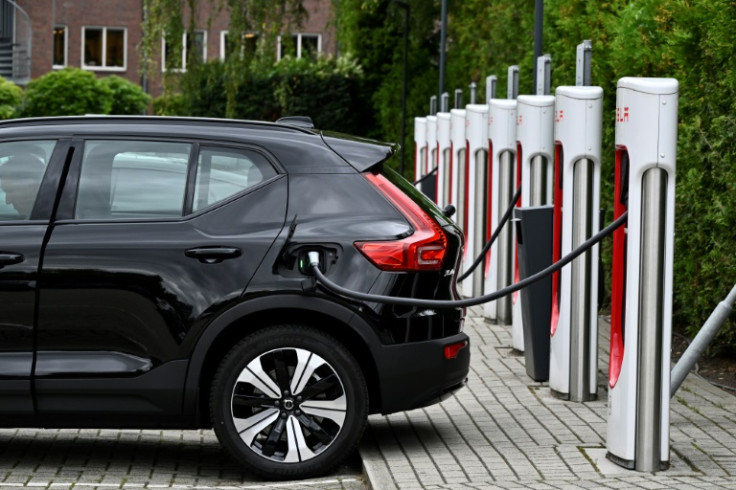Tire Maker Honored For Tackling Electric Car Pollution
Electric cars are widely hailed as the future of transport, but even though they eliminate the issue of fuel emissions from tailpipes, the problem of particle pollution as a result of tire wear hasn't been resolved.

Electric cars are widely hailed as the future of transport, but even though they eliminate the issue of fuel emissions from tailpipes, the problem of particle pollution as a result of tire wear hasn't been resolved.
A British company selected as a finalist for Prince William's Earthshot Prize now promises more durable tires that increase vehicle range and decrease the emission of toxic chemicals.
"We have here a very harmful and hidden pollution," Gunnlaugur Erlendsson, founder and CEO of ENSO, which caters specifically to electric vehicles, told AFP. "We're exposed to it whenever we breathe."
Because of decades of regulations that brought about improvements to internal combustion engines, tire and brake wear are today responsible for significantly more small particle pollution than vehicle exhausts, studies show.
Tire wear particles are also microplastics, with emerging evidence linking them to a range of impacts on heart and lung health, as well as cancers, in addition to widespread environmental harm.
For example, as much as 28 percent of the microplastics that reach the ocean comes from tire wear.
Some research suggests that electric cars might be worse offenders than gasoline and diesel powered vehicles on this front.
A study carried out by the research company Emissions Analytics this year found that the Tesla Model Y was responsible for 26 percent more emissions than the similar-sized hybrid Kia Niro. The report's authors said the electric car's heavier weight and harder acceleration was to blame.
Erlendsson disagrees with the idea that electric cars are uniquely problematic -- rather, the tire pollution problem has grown as vehicles become heavier, with the US market in particular trending towards large SUVs.
By using higher-grade raw materials combined with better engineering, ENSO has been able to improve its tires in a market that hasn't prioritized durability.
During real-world trials organized by Transport for London, the company's tires were shown to reduce particulate emissions by 35 percent and increase driving range by 10 percent.
"The energy saving we deliver is a direct carbon reduction because we still don't live in a world where electricity comes only from non-carbon sources," said Erlendsson.
By contrast, the wider industry is focused on cost-saving, making tires that don't last as long and need to be replaced faster, in order to boost sales. Researchers in the field of tire pollution are demanding stricter regulation, a call Erlendsson agrees with.
All that said, there are limits, he stressed. "We won't make tires last forever, but we can severely reduce the pollution that comes off them," he said.
"But of course, if people don't want to be generating tire pollution, they shouldn't be driving."
ENSO was among 15 Earthshot Finalists honored on Tuesday on the sidelines of the United Nations General Assembly in New York.
They are now in the running to receive one of five one million pound prizes ($1.24 million) awarded at a ceremony in Singapore later this year.
© Copyright AFP 2025. All rights reserved.





















